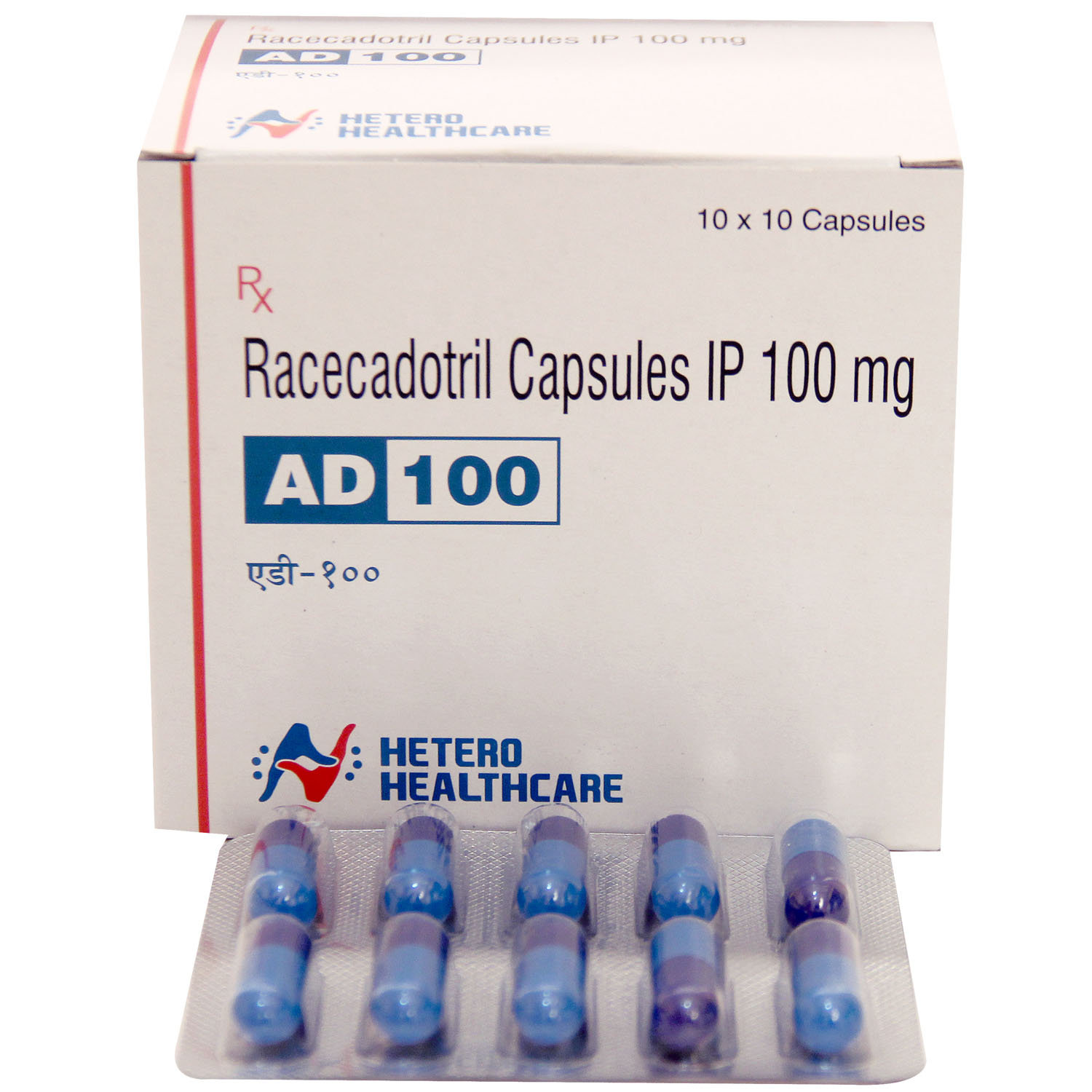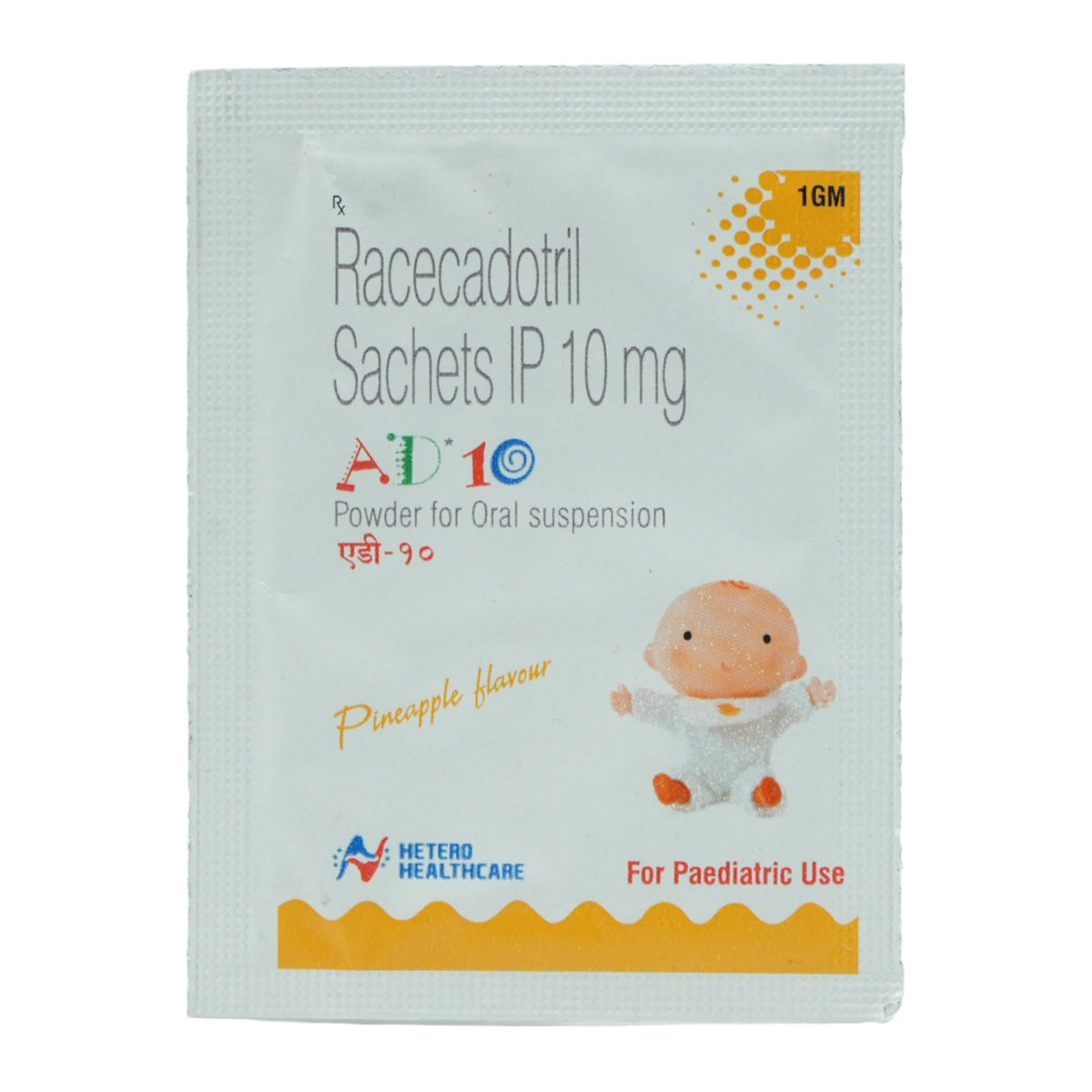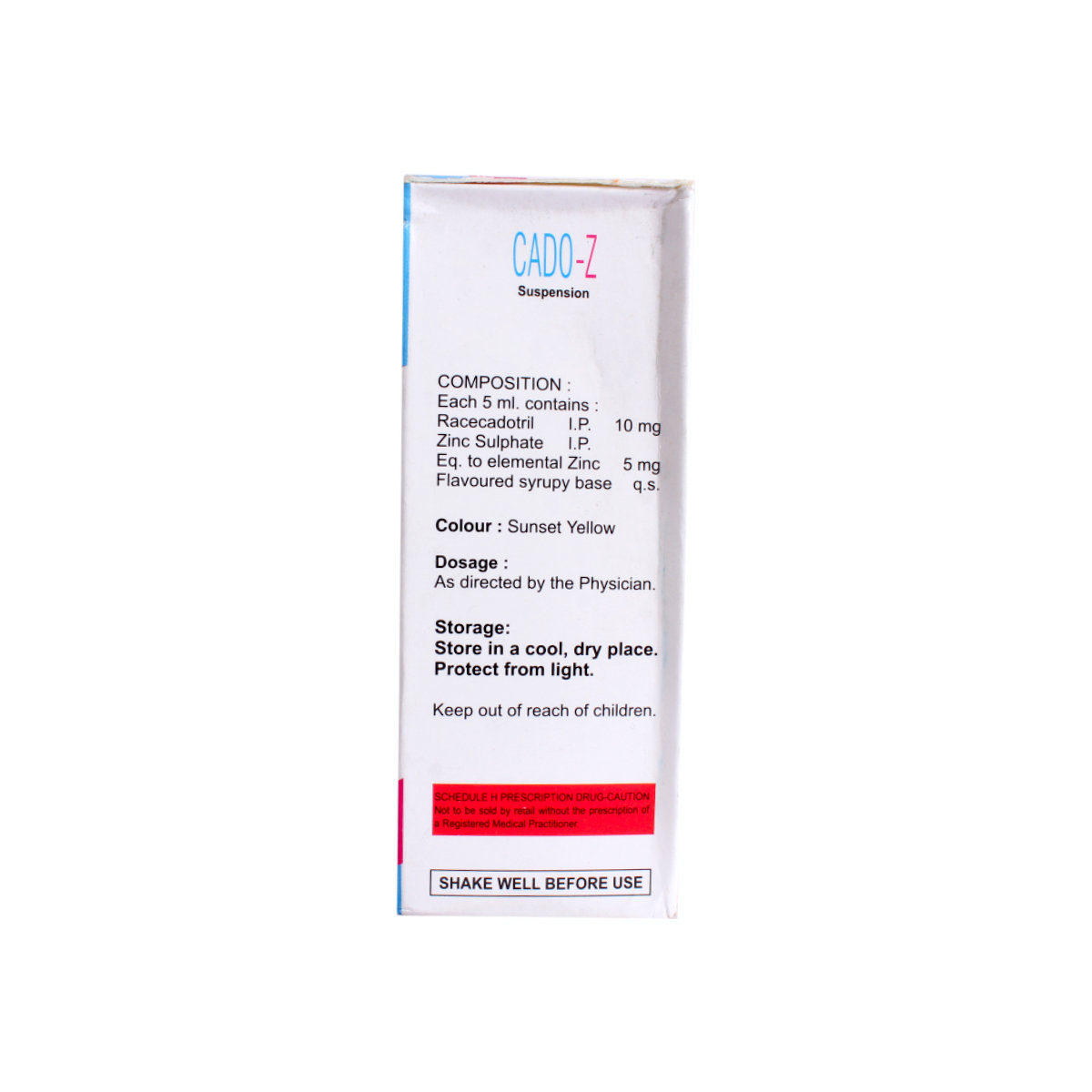Racecadotril
About Racecadotril
Racecadotril belongs to a group of medications called 'antidiarrheal' used to treat symptoms of acute (short-term) diarrhoea in adults and infants greater than 3 months of age. Racecadotril can be administered as a complementary treatment when acute diarrhoea cannot be treated casually. Acute diarrhoea occurs when there is a sudden onset of 3 or more loose/watery stools per day for at least 14 days.
Racecadotril contains ‘Racecadotril’ which is a prodrug (inactive form) that gets converted into ‘thiorphan’ (active form) which acts on the epithelium tissues of the small intestine. It helps in decreasing the intestinal hypersecretion (losing) of electrolytes and water induced by the cholera toxin or inflammation. Thus, Racecadotril exerts rapid antidiarrheal action, without changing the duration of intestinal transit (bowel transit time or time of food travel in the digestive tract).
Take Racecadotril as prescribed by your doctor. You are advised to take Racecadotril for as long as your doctor has prescribed it for you depending on your medical condition. In some cases, you may experience certain common side-effects such as headache, rash and skin redness. Most of these side-effects do not require medical attention and will resolve gradually over time. However, you are advised to talk to your doctor if you experience these side-effects persistently.
Talk to your doctor if you have a fever, blood or pus in stools, are suffering from chronic diarrhoea, diarrhoea caused by antibiotics, kidney or liver problems, or prolonged or uncontrolled vomiting. If your condition does not improve even after taking Racecadotril for 7 days, consult your doctor. Consult your doctor if you are pregnant or breastfeeding. Racecadotril should not be given to children younger than three months of age. Avoid consuming alcohol along with Racecadotril. Keep your doctor informed about your health condition and medicines to rule out any side-effects.
Uses of Racecadotril
Medicinal Benefits
Racecadotril belongs to group of antidiarrheal medicines called 'oral enkephalinase inhibitors' used to treat symptoms of acute diarrhoea in adults and infants (more than 3 months of age). Racecadotril should be used along with dietary measures and abundant liquid intake and administered as a complementary treatment when diarrhoea cannot be treated casually. Racecadotril is a pro-drug which breaks down into thiorphan (the active form) and works by decreasing the amount of salts and water secreted into the intestine, thereby making the stools less watery. Thus it helps in controlling the diarrhoea without interrupting change in bowel movement time.
Directions for Use
Storage
Side Effects of Racecadotril
- Headache
- Rash
- Skin redness
Drug Warnings
Do not take Racecadotril if you are allergic to any of its contents. Talk to your doctor if you have a fever, blood or pus in stools, are suffering from chronic diarrhoea, diarrhoea caused by antibiotics, kidney or liver problems, or prolonged or uncontrolled vomiting. If your condition does not improve even after taking Racecadotril for 7 days, consult your doctor. Consult your doctor if you are pregnant or breastfeeding. Racecadotril should not be given to children younger than three months of age. Keep your doctor informed about your health condition and medicines to rule out any side-effects.
Drug Interactions
Drug-Drug Interactions: Racecadotril may interact with ACE inhibitors- used to treat high blood pressure (captopril, lisinopril, enalapril, ramipril, perindopril).
Drug-Food Interactions: No interactions found/established.
Drug-Disease Interactions: Inform your doctor if you have kidney or liver disease.
Drug-Drug Interactions Checker List:
Safety Advice

Alcohol
cautionAvoid consuming alcohol while taking Racecadotril.

Pregnancy
cautionPlease consult your doctor if you have any concerns regarding this, your doctor will decide whether pregnant women can take Racecadotril or not.

Breast Feeding
cautionPlease consult your doctor if you any concerns regarding this, your doctor will decide whether Racecadotril can be taken by breastfeeding mothers or not.

Driving
safe if prescribedRacecadotril does not affect your ability to drive or handle machinery.

Liver
cautionDose adjustment may be needed in patients with liver impairment. Please consult your doctor if you have a liver impairment or any concerns regarding this.

Kidney
cautionDose adjustment may be needed in patients with kidney impairment. Please consult your doctor if you have kidney impairment or any concerns regarding this.

Children
safe if prescribedRacecadotril is safe for children over three months of age if prescribed by the doctor.
Habit Forming
Diet & Lifestyle Advise
- Drink plenty of fluids to stay hydrated.
- Include bland foods such as banana, rice, apples, cream of wheat, soda crackers, farina, applesauce and toast to avoid the aggravation of the digestive system.
- Avoid eating foods such as milk, dairy products, spicy foods, processed foods, pork, veal, sardines, raw vegetables, rhubarb, onions, corn, citrus fruits, alcohol, pineapples, cherries, seeded berries, grapes, caffeinated and carbonated drinks.
- Eat fibre rich food such as whole grains, lentils, beans, broccoli, and peas.
Patients Concern
Disease/Condition Glossary
Diarrhoea: It occurs when there is a frequent need to empty the bowels characterized by loose and watery stools. Diarrhoea could be acute or chronic. Acute diarrhoea generally lasts for at least 14 days which can be due to bacterial, viral infection or food poisoning. On the other hand, Chronic diarrhoea lasts for at least four weeks. It could occur due to intestinal disease/disorder such as Crohn’s disease or celiac disease. The causes of diarrhoea include food intolerance, food allergy, adverse reaction to any medicine, viral infection, bacterial infection, intestinal disease, parasitic infection, and stomach or gallbladder surgery. The symptoms of diarrhoea include nausea, abdominal pain, cramps, dehydration and bloating, frequent urge to empty the bowels, and large volume of stools or watery stools.
FAQs
Racecadotril works by decreasing the amount of salts (electrolytes) and fluids secreted into the intestine, thereby maintaining salt and water balance. Thus, it makes the stools less watery and helps in controlling diarrhoea.
Talk to your doctor if you do not feel better even after taking Racecadotril for 7 days. Do not take Racecadotril for longer durations unless prescribed by the doctor.
Although Racecadotril helps in decreasing the amount of salts and fluids secreted into the intestine, it does not help in rehydration. Racecadotril should be taken along with oral rehydration solutions (ORS) to avoid dehydration which occurs due to loss of fluids during diarrhoea.
Acute diarrhoea occurs when there is a watery stool at least 3 times per day for at least 14 days. In contrast, Chronic diarrhoea lasts for more than 2-4 weeks.











